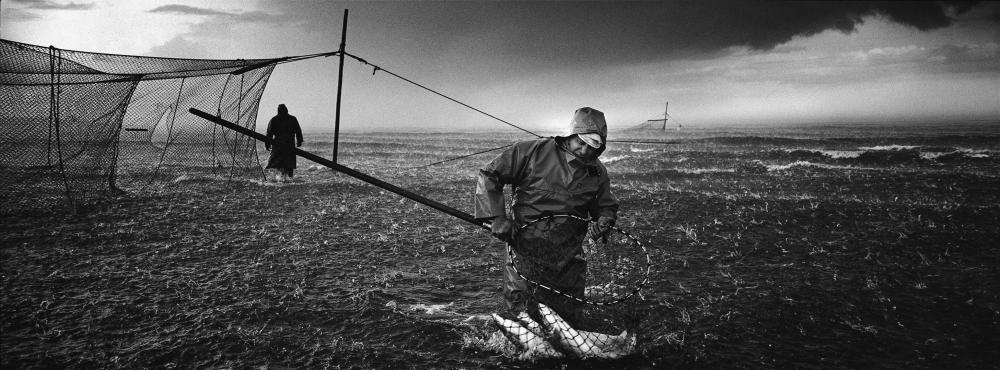
The wild Atlantic salmon is under threat. Decreasing numbers returning to their native rivers from the open seas to breed indicate that the species is in trouble. The decline in fish numbers, blamed on agricultural pollution, rising sea temperatures, degraded habitats and over fishing, comes with a human cost too. For centuries, generations of men have fished for the wild Atlantic salmon around Scotland's long and varied coastline. An industry which once supported thousands of men has virtually disappeared. Pressure from the wealthy and powerful angling lobby has led to fisheries being bought up and closed down. Now, only a handful of men remain to fish, using traditional netting methods and knowledge learned down the years. Soon their way of life will be gone. Over the last 15 years, photographer Colin McPherson has documented the fishermen at work, watching as they work in time with the tides through the summer months, intercepting the salmon as they return from the Greenland Sea to breed.
The deepening world environmental crisis is touching us all. From the developing world, to each corner of the affluent West, people will have to come to terms with the the results of climate change. It will inform the way we live over the next decades and bring profound change. Photographers are on the frontline and are witnessing how change is occurring. My contribution is to tell the story of Scotland's last salmon net fishermen and how environmental and social changes have affected their lives.
Telephone: +44 (0)7831 838717
Email: mail@colinmcpherson.co.uk
www.colinmcpherson.co.uk
www.catchingthetide.com
Make Comment/View Comments